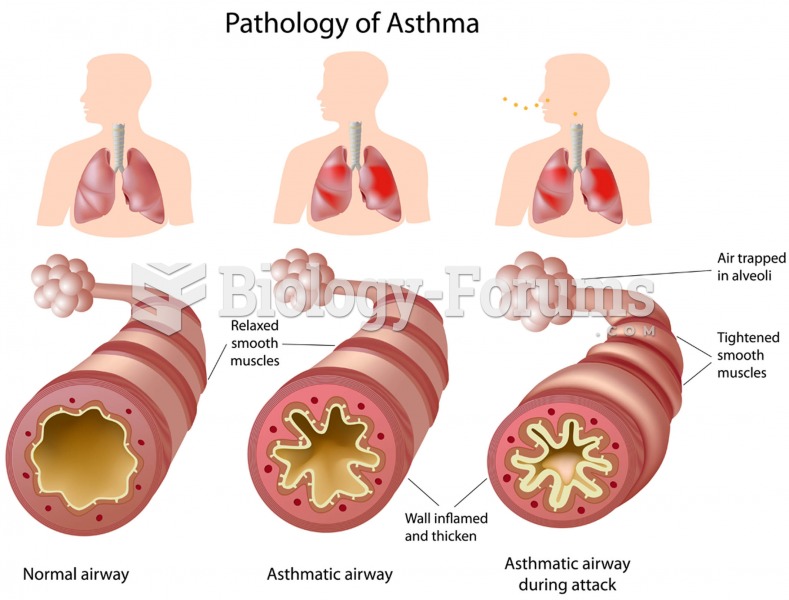|
|
|
Astigmatism is the most common vision problem. It may accompany nearsightedness or farsightedness. It is usually caused by an irregularly shaped cornea, but sometimes it is the result of an irregularly shaped lens. Either type can be corrected by eyeglasses, contact lenses, or refractive surgery.
Patients who have been on total parenteral nutrition for more than a few days may need to have foods gradually reintroduced to give the digestive tract time to start working again.
Hippocrates noted that blood separates into four differently colored liquids when removed from the body and examined: a pure red liquid mixed with white liquid material with a yellow-colored froth at the top and a black substance that settles underneath; he named these the four humors (for blood, phlegm, yellow bile, and black bile).
Women are two-thirds more likely than men to develop irritable bowel syndrome. This may be attributable to hormonal changes related to their menstrual cycles.
Many of the drugs used by neuroscientists are derived from toxic plants and venomous animals (such as snakes, spiders, snails, and puffer fish).
 Asthma. (a) A normal bronchiole. (b) An asthmatic bronchiole. During an asthma “attack,” the bronchi
Asthma. (a) A normal bronchiole. (b) An asthmatic bronchiole. During an asthma “attack,” the bronchi
 Changes in bronchioles during an asthma attack: (a) normal bronchiole, (b) inflammation obstructing ...
Changes in bronchioles during an asthma attack: (a) normal bronchiole, (b) inflammation obstructing ...





